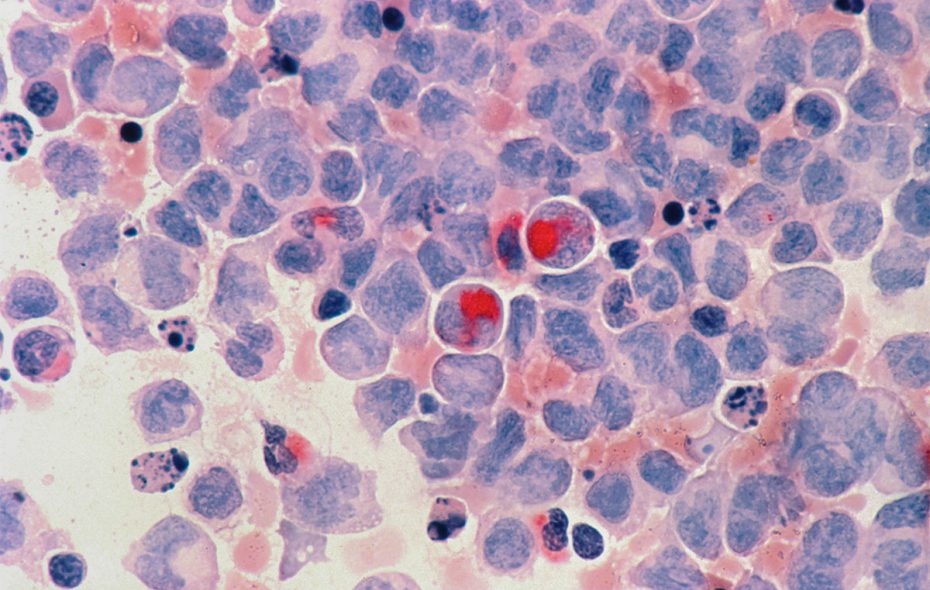
CellCentric is developing first in class drug compounds against a key regulator of cancer. P300/CBP are twin (paralogue) histone acetyltransferase proteins, that act as transcriptional co-factors. When inhibited they cause the down regulation of the androgen receptor (AR) and its variants. It also decreases c-Myc, another key cancer driver.
CellCentric has been focusing the use of its new potent, specific, orally deliverable compounds for the aggressive form of prostate cancer, CRPC, where AR and AR-splice variants play a key role.
Recent scientific publications have shown that cancer cells can gain mutations in p300 or CBP. When this happens, the cell becomes dependent, or addicted, to the corresponding paralogue protein. Inhibition of p300/CBP with drug compounds can then drive synthetic lethality – cancer cell death. This potential new way to treat certain types of cancer occurs is application to up to 20% of lung cancers (both small cell and non-small cell, NSCLC) as well as bladder cancer (up to 25%) and leukaemia (up to 18%).
CellCentric has won an award from the UK’s innovation agency, Innovate UK, to expand its work, to investigate the use of p300/CBP inhibitors beyond prostate cancer. The funds will be used to confirm the synthetic lethality mechanism in lung cancer. It will go on to validate if p300 and CBP mutations can be readily detected in circulating tumour cells, thus allowing clinicians to easily identify patients that will benefit from the new inhibitor drugs that are being developed.
Lung cancer accounts for 25% of all cancer deaths. Despite other new targeted approaches (e.g. EGFR and ALK inhibitors for NSCLC), over 50% of lung cancers are not molecularly defined. Thus p300/CBP inhibitors offer a significant new opportunity, either as single agents or used in combination with existing or other developmental drugs. This is also a significant commercial opportunity. The lung cancer drug market is set to reach $14.3bn by 2024. Even a small segment such as that representing ALK positive tumours (4-8% of total) are predicted to have sales of $1.2bn.
About CellCentric
CellCentric is a biotechnology company developing novel therapeutic products, based on its knowledge of epigenetics. The company was co-founded with Prof Azim Surani FRS CBE of University of Cambridge, and one of the earliest pioneers in the space.
CellCentric has identified and investigated nearly 50 enzymes associated with epigenetic regulation, and has carried out early drug discovery on six. One of these, an arginine methyltransferase programme was licenced to Takeda Pharmaceuticals. The company’s own lead programme is the development of first-in-class inhibitors of p300/CBP histone acetyltransferases. These have potential for the aggressive form of prostate cancer (CRPC), as well as other cancers through a synthetic lethality mechanism.
About Innovate UK
Innovate UK is the UK’s innovation agency. We are business focused and drive disruptive innovation right across the UK economy, funding and connecting pioneering businesses so they can create the products, processes and industries of the future. It is our mission to boost productivity, increase exports and help the UK economy grow. For further information and to stay updated on our latest news visit www.gov.uk/innovateuk, follow us on Twitter at @innovateuk or subscribe to our YouTube channel at www.youtube.com/InnovateUK.